


For the JFK Community










































Service Learning inMiddle School
Extended Learning
Movilidad y Sustentabilidad Jaguar Delegates, Jaguar Delegates, rawr!
Did you Know? International Families
First Parent Talks Congress
La seguridad tras una credencial
You can navigate our digital magazine using different electronic devices:

Use the arrows to scroll to the right or left. You can also scroll using your fingers. You will find this icon at the beginning of each article. You will find this icon at the end of each article.
As we find the summer approaching, it is with great pleasure that I share my excitement of another great school year through the pages of this magazine. I always find this a great moment of reflection… we get so trapped in our daily routines with the desire and the challenges to continually improve the school that at times we forget to sit back for a moment and see what a great school we already have: filled with achievements, growth, and our commitment to Achieving The Extraordinary.
This edition is full of articles that help us reflect on the diverse and dynamic life of our school community. From the fun (and triumphs!) of the Asomex Volleyball tournament, where our Jaguars showed their great skills and sportsmanship in front of so many other schools, to the work to enhance child safety and campus security, ensuring a safe environment for all. One highlight in this is the coverage of our first ‘Parent Talks’ congress on child safety, bringing to JFK renowned national speakers, experts and educators to engage in meaningful discussions on safeguarding our children.
Other articles include a look at our Extended Learning Program that
offers opportunities for a more holistic development of our students, and the impact this has on their educational journey. In the same theme, our annual participation in the Model United Nations conference in Washington shows our commitment to building global citizenship and empowering our students to become compassionate leaders of tomorrow.
Last but certainly not least, we shine a spotlight on the remarkable efforts of our students in serving their communities through their social service initiatives, one of which led to JFK winning ‘best social service’ award from the member schools of TRI Association across Latin America, an incredible achievement and one very well deserved.
There is much more here to also enjoy, so please take a moment to sit back and learn more about this great school. I hope you find this edition as
 Adrian Leece General Director
Adrian Leece General Director
As I sit down to write this letter, it’s with a blend of nostalgia and gratitude, knowing that this will be my final contribution to our beloved JFK Times. After 18 remarkable years of working at the school, the time has come for me to bid farewell and embark on a new chapter of my life. Reflecting on our collective journey over nearly two decades fills me with immense pride. Together, we’ve witnessed extraordinary achievements and navigated through both challenges and triumphs. From the inception of this magazine as a platform for celebrating the successes of our esteemed alumni, every page has been a testament to the talent, dedication, and spirit of our school community.


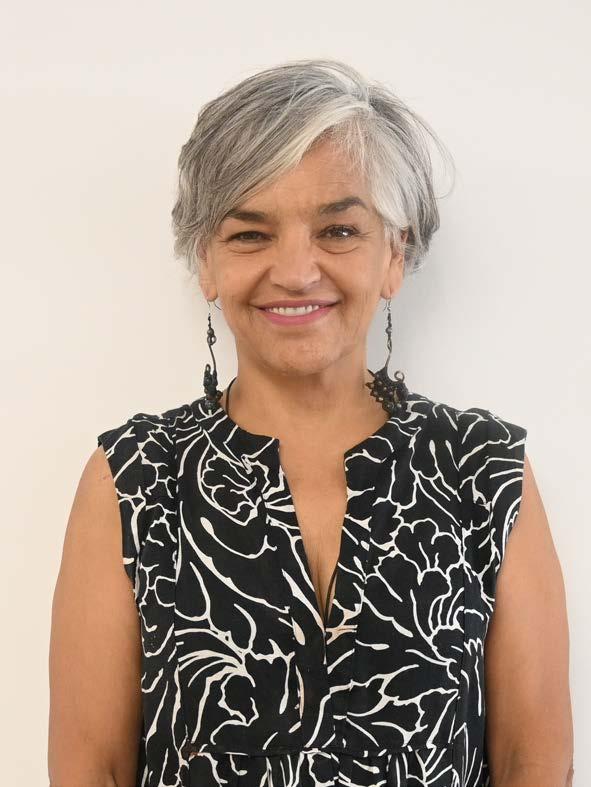
One of the most rewarding aspects of my position has been witnessing the growth and transformation of our school. From achieving prestigious certifications to commemorating the milestone of 60 years of excellence in education, each milestone has been a testament to our commitment to academic excellence and holistic development as a community. However, our resilience truly shone brightest during the unprecedented challenges posed by the global pandemic. In the face of adversity, our community came together with unwavering strength, compassion, and innovation. Whether it was adapting to remote learning, supporting each other through difficult times, or finding creative ways to stay connected despite physical distance, we demonstrated the true essence of unity and solidarity of our Jaguar spirit. As I bid farewell, I want to express my heartfelt gratitude to each and every one of youthe talented writers, dedicated contributors, and avid readers who have made JFK Times more than just a publication, but a vibrant reflection of our school’s ethos and spirit.
As I embark on this new chapter of my life, I carry with me cherished memories, lasting friendships, and the profound impact of being part of such a wonderful community. Thank you for allowing me the privilege of serving as your editor-in-chief. It has been my honor and joy.
EDITOR IN CHIEF
Mónica Duarte Balcárcel
MANAGING EDITOR
Martha Suárez
WRITERS AND CONTRIBUTORS Antonio Benítez, Claudio Patiño, Mónica Reims, Oxana Vasyl Yeva, Clarisa Montes de Oca,Fe del Carmen García, Felipe Rubio Alquicira, Paola Regalado, Katya Jimenez Olalla, Radia Si Youcef
GENERAL DIRECTOR
Adrian Leece
ASSISTANT GENERAL DIRECTOR
Dave Brown
PRESCHOOL PRINCIPAL
Debra Cortney

With warm regards and best wishes for the future, Mónica Duarte Balcárcel
Editor-in-ChiefELEMENTARY SCHOOL PRINCIPAL
Mark Dunn
MIDDLE SCHOOL PRINCIPAL
Camille Casses
HIGH SCHOOL PRINCIPAL
Stuart Porter
PHYSICAL EDUCATION DIRECTOR
Arturo Bustamante
FINANCIAL DIRECTOR
Josefina Morgan
OPERATIONS AND SERVICES
DIRECTOR
Jeffrey Lewis
BOARD OF DIRECTORS
C.P. Fernando Besoy Lloreda
Lic. Mónica Franco Hernández
Lic. Luis Daniel Ruíz López
Ing. José Antonio Blanco Carrillo
Lic. Eduardo Jacobo Córdova Lucas
Lic. Cristina Fortuny Escámez
Lic. Paula Fernanda Herrera Baleón
Lic. Abel Mejía Cosenza
Lic. Jean Soupart
EDITORIAL COMMITTEE
Mónica Duarte
Martha Suárez
Violeta Álvarez
Andrea Barroso
Mónica Reims
Este año fuimos orgullosos anfitriones del Torneo ASOMEX de Voleibol, en el que obtuvimos el campeonato en la categoría Juvenil A, Juvenil B femenil y en la Juvenil C varonil, así como un segundo lugar en la categoría Juvenil C femenil. También obtuvimos el Sportsmanship en la categoría Juvenil B, por nuestro espíritu deportivo, demostrando la importancia de seguir las reglas y demostrar nuestros valores en el deporte, siempre apoyados por nuestra tribuna.
En este gran evento participaron escuelas, con un total de 25 equipos, en sus categorías Juvenil A, B y C en la rama femenil. En la rama varonil, fue un torneo invitacional con la participación de dos escuelas que no pertenecen a ASOMEX.






Este Torneo ASOMEX fue un pretexto ideal para que toda la comunidad JFK participara. Quizá te preguntarás: yo no juego en el equipo, sin embargo, participaste de la siguiente manera:
• Participaste en el apoyo para que estuvieran listas infinidad de necesidades que se deben de tener para albergar un torneo de esta magnitud.
• Participaste asistiendo a uno o muchos partidos a lo largo de los
la participación de los más de 250 alumnos que estuvieron representando a su institución, alentándolos en el triunfo o en la derrota.
• Participaste apoyando a todos los visitantes al darles alguna ubicación de nuestra gran escuela, apoyándolos o guiándolos sobre qué caminos tomar en nuestra ciudad, o simplemente siendo cordial y haciéndoles saber que estuvimos gustosos de tenerlos en el JFK..


El día de hoy nos sentimos orgullosos de la comunidad a la que pertenecemos, todos disfrutamos estos días de la alegría que nos da el estar involucrados en deportes desde cualquiera de los diferentes roles, que hacen que JFK sea una sede muy importante para más eventos ASOMEX que vendrán próximamente.
Let’s go Jaguars!!!
First Parent Talks Congress “Preventing abuse: exploring boundaries and promoting healthy relationships”
By Clarisa Montes de Oca Student Support Services CoordinatorLa seguridad tras una credencial
Claudio Cesar Patiño Fernández Security, Safety and Health Coordinator
International Families
In November of last year, our school embarked on a groundbreaking initiative aimed at fostering safer, healthier environments for our children. The inaugural Parent Talk Congress brought together parents, educators, and experts under one roof to tackle a pressing societal issue: preventing abuse and nurturing healthy relationships. With a spotlight on exploring boundaries and equipping caregivers with essential tools, the event served as a beacon of empowerment and education in our community.
Central to the congress was the theme of “Preventing abuse: exploring boundaries and promoting healthy relationships”. This theme served as a guiding principle for the diverse array of discussions and presentations offered throughout the event.
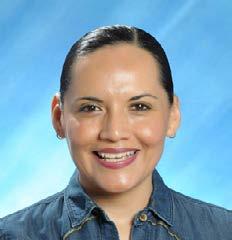 By Clarisa Montes de Oca Student Support
By Clarisa Montes de Oca Student Support

Our Invited specialists Mtra. Rosalía Alarcón (Executive of the Human Rights Ombudsman of Queretaro), Psychiatrist Dr. Rafael López, and Psychologist Marcela Escalera, analyzed the topic from the different perspectives that influence the individual, the family, the school, the community and society. As adults, we should not educate kids on overprotection. We need to allow our children to go out into the world and interact with those around them and at the same time help them learn about the topics in which we need to take precautions to prevent risks.
It’s easy to teach a child not to go near the stove, but apparently talking to them about body safety is something that, unfortunately, is sometimes talked about when it’s too late. It is known that there is no profile of the aggressor since he or she may or may not be an adult, may belong to the family environment, be someone close or unknown.
Besides this event, as part of our social-emotional programs, we have had different activities this school year such as the conferences “Boundaries for the prevention of sexual abuse” by Rosario Busquets, “Prevention of child abuse” and “Prevention of sexual violence in adolescents” by Alicia Guzmán, and workshops for our students, with content appropriate for each school grade.
We sincerely thank all the parents who participated in these activities. Your involvement demonstrates a commitment to safeguarding our children’s well-being. Together, through education and dialogue, we strengthen our ability to create a safe environment for every child. Thank you for your invaluable support and partnership. Remember that fostering an environment of respect and trust within the family will help to inform and be able to report if necessary.




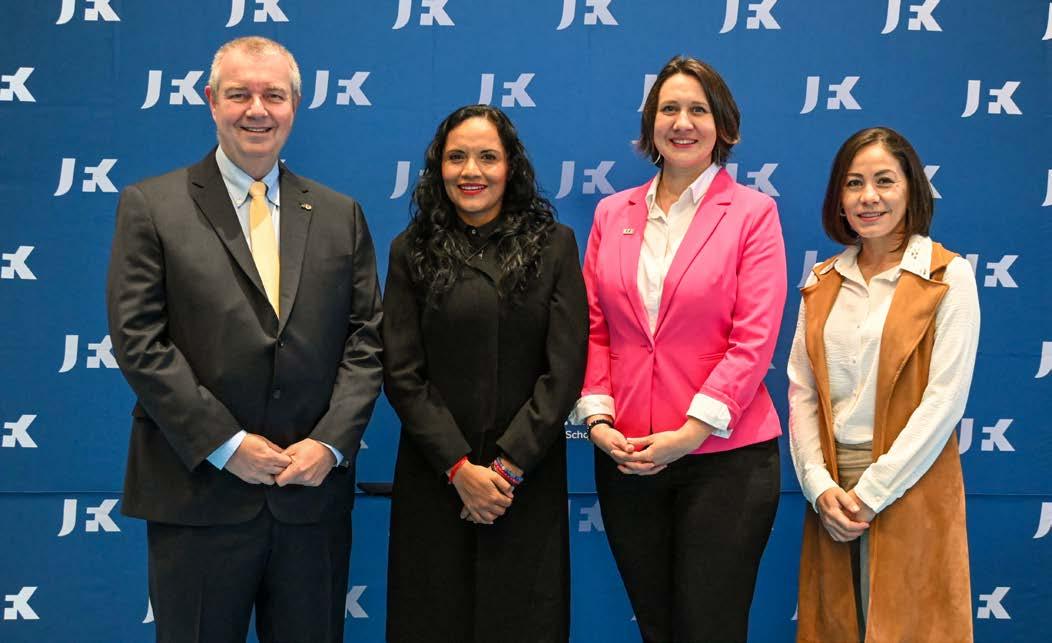
Generalmente pensamos que cuando la escuela nos otorga una credencial, es solo un gesto para identificarnos como miembros de la comunidad. Pero detrás de una identificación o credencial hay algo llamado “controles de acceso”, que agrupan herramientas tecnológicas, físicas y humanas para permitir que una persona, vehículo o dispositivo tenga el derecho para acceder o salir del campus por la puerta correcta, en el horario correcto, y en nuestro muy particular caso para algunos estudiantes, con el adulto correcto. Los controles de acceso permiten contabilizar a cada persona que está dentro del campus, y saber a qué hora entró o salió y por qué acceso lo hizo.
Imaginemos que no existieran estos “controles de acceso”, que el guardia solo estuviera para abrir y cerrar la puerta a cualquier alumno, papá, maestro, trabajador, proveedor, vehículo, herramienta, equipo, etc. Sin un filtro de entrada ni requisito de autorización, podría entrar cualquier persona a instalarse en nuestros jardines, platicar con nuestros alumnos y maestros, y, ¿por qué no?, podrían acceder vendedores, mercancías o sustancias prohibidas o personas con intenciones de robo o secuestro, etc. La gama de posibilidades y riesgos es infinita, si no existieran reglas claras y estrictas para autorizar la entrada y salida de personas en nuestro campus.
Los papás depositan su confianza en la escuela cada mañana al dejar a sus hijos, desde preescolar hasta prepa, son en su gran mayoría menores de edad, no debemos permitir espacio para el error. El entorno siempre presenta nuevos retos en materia de seguridad, que nos obligan a ser más estrictos para poder garantizar la protección de nuestra comunidad desde un enfoque preventivo. Todos estamos llamados a ser más responsables, congruentes y activos. Tenemos en nuestras manos el tesoro más valioso de una familia.



Un control de acceso fundamental para nuestra seguridad es el sistema de credenciales. La escuela cuenta con una gama de colores de credenciales que dan identidad y describen perfectamente los derechos y responsabilidades de cada una de ellas (consulte el Manual de Seguridad del Campus para más información). Cada color cuenta con uno o más requisitos para poder acceder y salir de la escuela; algunos de estos requisitos son más estrictos y nos pueden “molestar”, ya que el ser humano está acostumbrado a ser libre. Es importante recordar que, para vivir en armonía dentro de una comunidad, debemos cumplir las reglas que nos marcan las autoridades para garantizar la seguridad de nuestros hijos.
Cada credencial cuenta con niveles de seguridad para impedir su falsificación y se deben tener ciertos cuidados: no exponerla al fuego o directamente a los rayos solares, no pegarle calcomanías, no morderla, perforarla o romperla, ya que pueden dañar el chip que almacena los datos personales del dueño, y de ser así se invalida automáticamente.
En algunas ocasiones se presentan casos críticos que exigen soluciones rápidas, por ejemplo, si un padre de familia llama a la escuela porque su hijo no ha llegado a casa y no aparece por ninguna parte. La escuela debe rápidamente buscar los registros electrónicos de entrada y salida, para saber si el alumno efectivamente entró o salió, saber qué hora y por cuál acceso, inclusive con quién se fue. Esta información clave permite ayudar a los padres de familia tener la tranquilidad y las herramientas para resolver este tipo de situaciones rápida y eficazmente. Por eso, se han implementado nuevos controles que evitan prácticas como prestarse credenciales entre alumnos, para evitar perder el control de quién entra y sale del campus.
a fondo, y es algo así como invitar a un desconocido a nuestra casa. Es por eso, que los guardias tienen la encomienda y obligación de filtrar, solicitando los datos e información básica que los identifique y acredite debidamente. La escuela debe garantizar a toda la comunidad Kennedy que cada persona que está dentro del campus ha sido contabilizada y ha pasado por el filtro de seguridad adecuado.
Estos esfuerzos se ven afectados cuando alguien olvida su credencial o la pierde. Para estos casos, existe la posibilidad de expedir un pase de salida, pues entendemos que pueda suceder ocasionalmente. Sin embargo, durante este ciclo escolar, se han expedido más de dos mil pases de salida para 685 alumnos, prácticamente la mitad de la comunidad escolar. La facilidad y frecuencia con que se solicitan estos pases vulnera los controles de acceso, por lo que a partir del próximo año escolar se tomarán otras medidas que sean coherentes con el sistema de seguridad que todos deseamos para nuestra comunidad.

Los padres de familia tienen una responsabilidad muy grande en sus manos cuando deciden autorizar una credencial para que otro adulto, familiar o auxiliar doméstico, pueda recoger o hacer trámites de sus hijos. Otorgar este poder es delicado y no debe tomarse a la ligera, pues estamos abriendo la puerta de nuestra comunidad a alguien que conocerá a nuestros miembros, horarios y hábitos. Es necesario mantener una comunicación estrecha con nuestro departamento de seguridad en caso de solicitar estos permisos.
Cada uno de nosotros, al mostrar una credencial al guardia de seguridad y portarla dentro de las instalaciones, nos estamos identificando con todos los que convivimos dentro de la escuela, pero sobre todo con las autoridades de seguridad, que necesitan diferenciar a aquellas personas que son de casa de las que nos visitan. Los visitantes son personas que requieren cierta supervisión ya que no los conocemos
Durante un año escolar recibimos miles de visitantes y tenemos cientos de eventos, la labor del equipo de seguridad es ardua y constante. Le pedimos a la comunidad ser consciente del compromiso que esto conlleva, y usar sus credenciales con responsabilidad como piedra angular de la seguridad en nuestra institución.


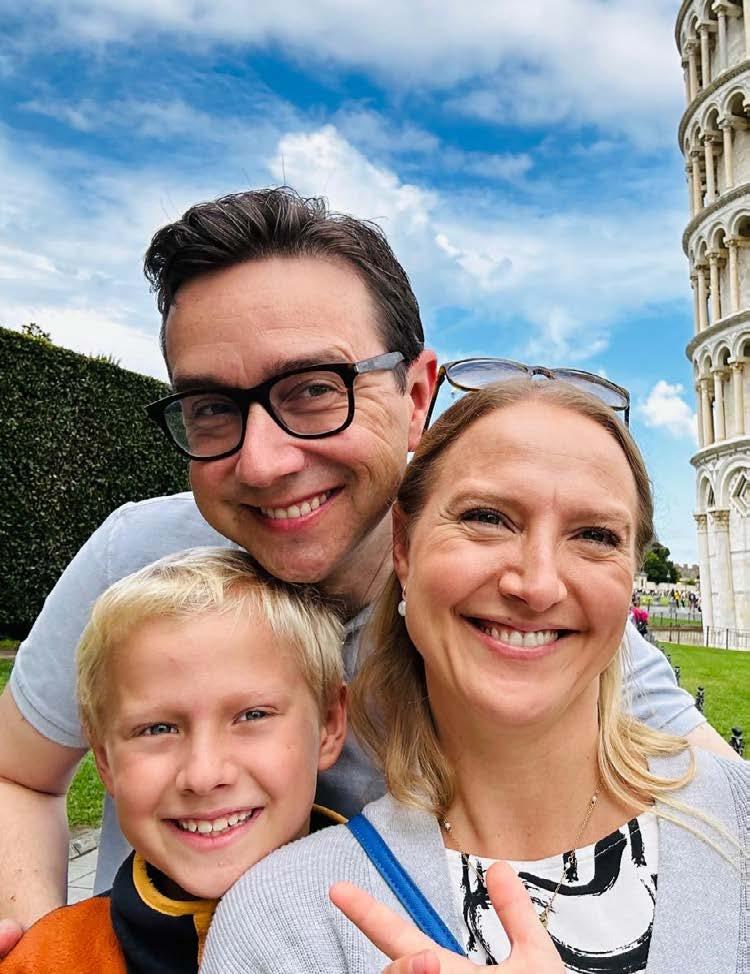



KFamily members
Mother: Anna
Father: Brian
Kids: Theodor (Theo) ES2 and Eleanor (Elli) ES4
Country of origin: We moved from Germany on February 23rd 2024. Brian is a US Citizen but has lived in Germany since 2007 for 17 years. Theodor and Eleanor are German/ American.
We chose JFK because we loved the bilingual profile of the school. We really want our kids to be able to use 50% Spanish at some point. The sports profile from the school is quite strong. Great sports locations and offers for the kids after school. Nice classrooms. Many after school activities, everything is well taken care of the *Buddy system and the educational profile aligned with the US.
What we like most about school is that our kids feel very welcomed and they love going, which is the best sign of all!
What we like most about Mexico is that it’s very family oriented: we both love our family and parents and enjoy seeing a culture that embraces everyone inside the family and includes all (old and young). Good weather, although we definitely will miss the snow in the winter but we love the sun every day. Friendly people: everyone tries to make us feel welcome. We came not knowing any Spanish but still try our best with the little that we know. People are trying to communicate and are very helpful in trying to understand each other. Interesting history and culture: we love traveling. Great food: we love food!
*Buddy System: Support program for newcomers. Every new student is assigned a buddy to help them with how the school works.


Family members
Mother: Reiko
Father: Takuma
Kids: Akari (ES1) and Hikari (K2)
Country of origin: Japan


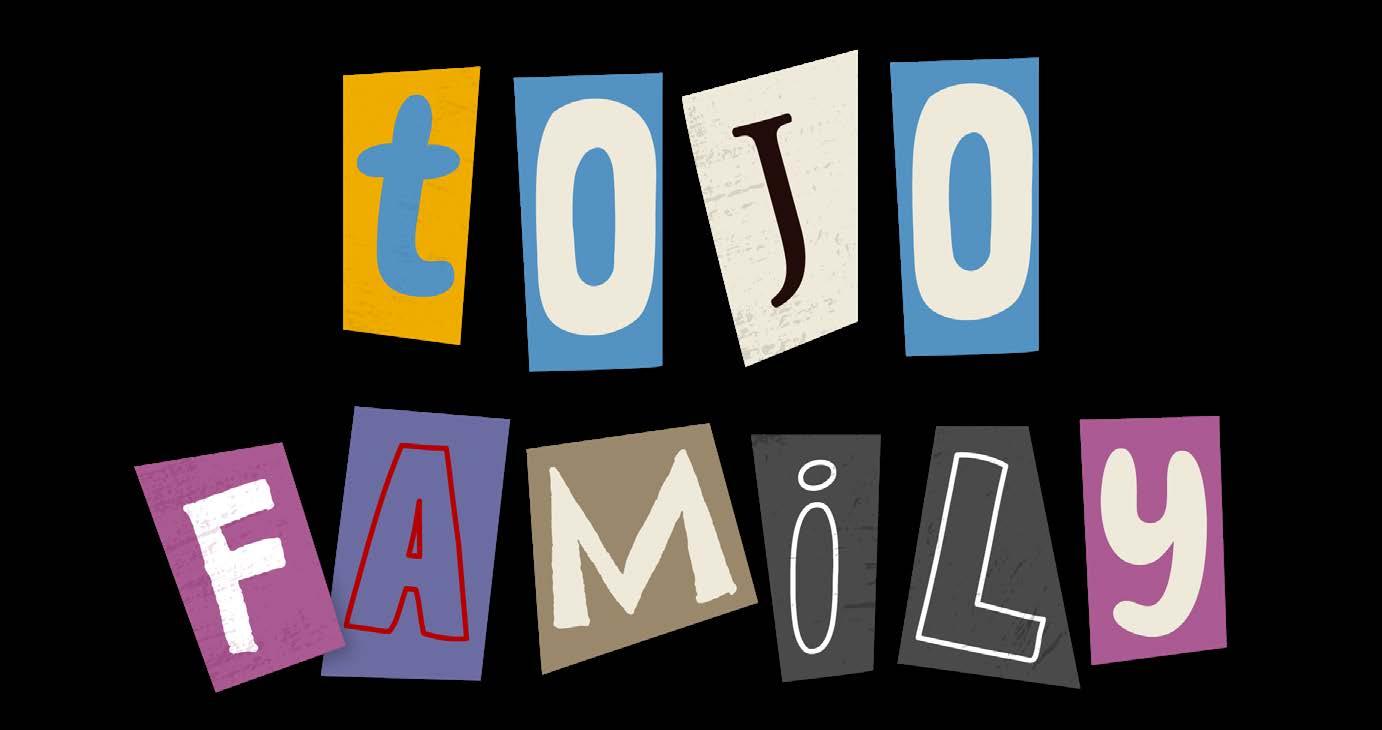
TWe were looking for a school that focuses on English education and found JFK. We had just arrived in Mexico from Japan and our kids did not yet understand Spanish, but they could understand a little English, so we were looking for a school where the classes were taught in English and other students spoke English. Also, we may move around the world in the future, so one of the reasons we chose this school was that it introduced the IB program, which allows children to study under a common educational policy wherever we live in the world.
We think the great aspect of this school is its support system for foreign students. Even students of young ages have an open mind to foreigners. For our family, JFK is the second school we have experienced in Mexico. The first school did not have a program like SWAS, and our children had to integrate into regular classes with other Mexican children from the first day. It was a great environment for a little child like a kindergardener, but for our older daughter who was already an elementary student it was very challenging. But in JFK, the teachers at SWAS were like a second mother to my daughter. Not only for the educational aspect, but also for the emotional stability because they build close relationships with children who have just come to a foreign country and are feeling a bit nervous. It was very reassuring for both parents and children to have a place where they felt emotionally safe. And also it is a great point that kids can integrate into the regular class after removing their language barrier through the SWAS program.
What we like most about Mexico is the people are cheerful and friendly. There are many hard things about living abroad. You may encounter language barriers, cultural barriers, and sometimes national racism. But in Mexico, even if you don’t speak perfect Spanish, people will try to understand you and never reject you. We recognize that Mexico is a country with less discrimination than other countries in the world. We think it is a wonderful country especially to live in with small children, because people are very tolerant of children and parents who have small children.

Desde su inicio en 2015, Extended Learning ha sido un faro de oportunidades para nuestros alumnos, ofreciendo actividades que combinan diversión, recreación y aprendizaje, todo en un solo lugar. La visión detrás de este proyecto era simple pero poderosa: permitir a los niños y jóvenes explorar y desarrollar sus talentos únicos en un ambiente estimulante y enriquecedor. Al principio, el repertorio de actividades se limitaba a campos como el arte, la música, la robótica y en ese momento se encontraba SWAS (School Within a School) como un integrante más. Sin embargo, como un árbol que crece y se ramifica, Extended Learning no se conformó con lo básico. Al año siguiente, se agregaron nuevas opciones como el origami, el ajedrez, el Hip-Hop, el teatro y mucho más. La variedad de talleres se expandió para abarcar desde expresiones artísticas hasta idiomas extranjeros, incluyendo alemán, chino mandarín y francés.
Extended Learning ha evolucionado constantemente, adaptándose a las necesidades y preferencias cambiantes de sus alumnos, por lo que cada semestre se buscan opciones que estimulen los intereses y promuevan el desarrollo personal.
Extended Learning es un lugar donde los niños descubren sus pasiones, superan desafíos y forjan amistades, donde el crecimiento no tiene límites, y el amor por el aprendizaje y la convivencia nunca se desvanece.
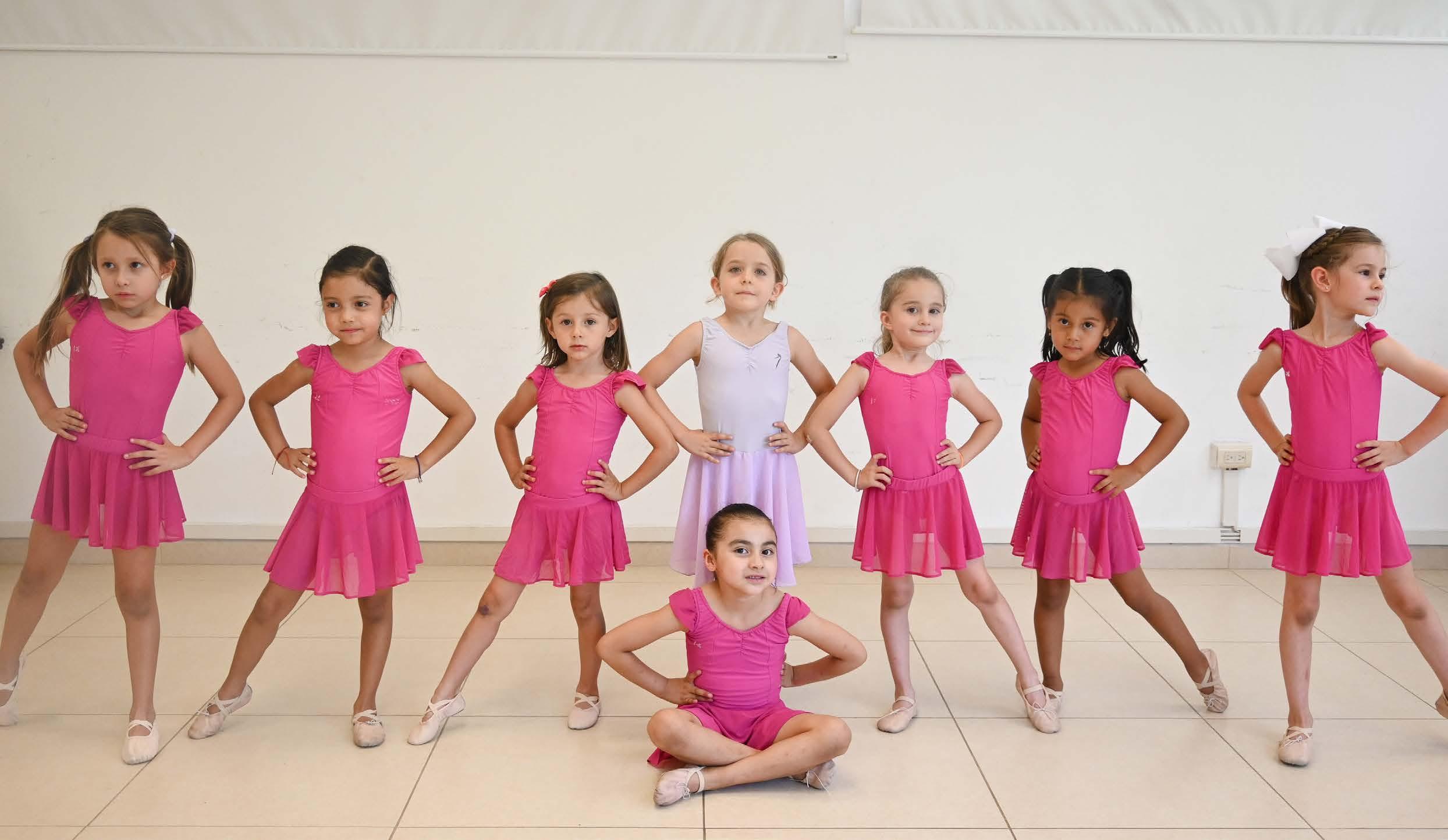
 by Fe del Carmen García Extended Learning Coordinator
by Fe del Carmen García Extended Learning Coordinator
Los talleres son temporales, siempre en busca de opciones que estimulen los intereses y promuevan el desarrollo personal.
Uno de los retos más emocionantes fue la primera competencia de robótica, “Mentes Brillantes”, que tuvo lugar en febrero de 2019. Este torneo no solo brindó a los niños la oportunidad de mostrar sus habilidades técnicas, sino también de colaborar y competir con escuelas de los estados de Guanajuato y Querétaro. Poco después, en enero de 2020, los bailarines de Hip-Hop, se enfrentaron en el concurso regional de danza BEC, demostrando su talento y dedicación en un escenario más amplio.
Pero no solo se trata de competencias externas. Los alumnos de ajedrez han participado en numerosos torneos internos, mientras que los practicantes de Taekwondo han representado a la escuela en eventos intercolegiales, demostrando el espíritu competitivo y el compromiso con la excelencia.



























En el ciclo 2022-2023, la adición de la clase de Parkour fue recibida con entusiasmo por los alumnos de Elementary y Middle School. Esta nueva disciplina no solo ha sido popular, sino que también ha ayudado a los niños a desarrollar habilidades físicas y mentales, promoviendo la confianza y la superación personal.
En Extended Learning, el enfoque va más allá de simplemente enseñar habilidades específicas. Se trata de cultivar individuos completos, comprometidos y resilientes, capaces de establecer y alcanzar objetivos, de aprender y divertirse, de expresarse y liberar tensiones. Aquí, cada niño es alentado a descubrir su pasión y a alcanzar su máximo potencial en un entorno de apoyo y enriquecimiento continuo.
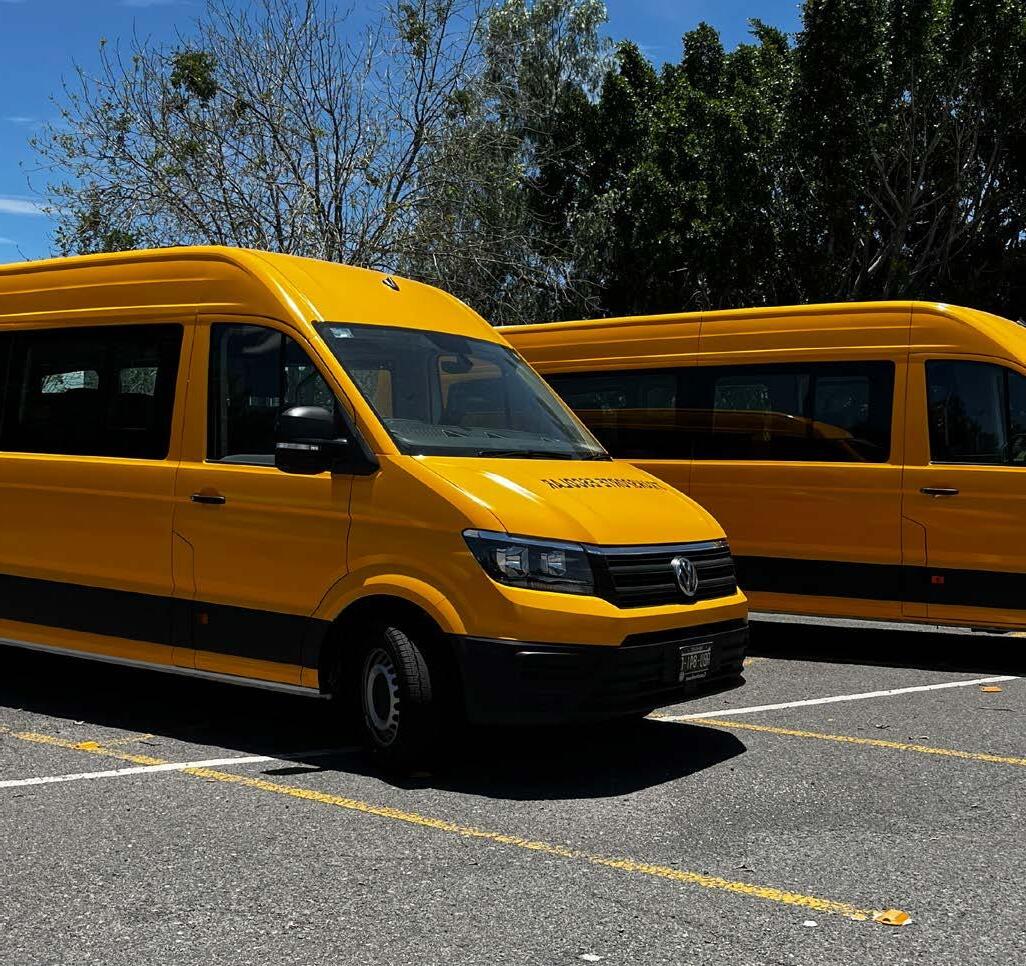
Los retos ambientales son tema de conversación entre las nuevas generaciones. Acciones como separar residuos, reciclar, no usar desechables y cuidar el agua, reflejan un alto nivel de conciencia de los problemas que presentan nuestro ritmo de vida y nuestros modelos de consumo.
Cada vez más aspectos de la vida cotidiana nos obligan a reflexionar sobre la relación que tenemos con nuestro entorno inmediato.
 by Mónica Reims Community Relations Manager
by Mónica Reims Community Relations Manager

El tráfico generado por la movilidad escolar y los riesgos que implica para la seguridad de la comunidad han generado la necesidad de crear mecanismos y estructuras que prioricen la sostenibilidad. Debemos caminar hacia un equilibrio entre las necesidades de movilidad y seguridad, y el cuidado del medio ambiente. Es momento de despertar en nuestros alumnos y en nosotros mismos, un sentido de responsabilidad social, promover su independencia y su capacidad de generar lazos de cuidado y apoyo entre nuestra comunidad.
Estamos muy orgullosos de que, a lo largo de este año escolar, hemos generado alternativas y medidas que han permitido modificar los patrones de movilidad de nuestra comunidad hacia la sustentabilidad. El transporte escolar implementó 3 rutas, que han disminuido el número de automóviles circulando diariamente hacia la escuela, generando un impacto positivo inmediato para el medio ambiente.
Además, los alumnos desarrollan valores como compañerismo, responsabilidad y respeto. En cada uno de estos viajes se fortalece la vida en comunidad, al crear un sentido de pertenencia y colaboración entre ellos, padres de familia y la escuela. Nuestra entrada exclusiva para peatones y bicis, ha permitido entrar al campus con mayor seguridad.
Cada vez tenemos más estacionamientos para bicis y más familias llegando al campus sin el uso de un automóvil. En esta entrada se ha generado un punto de encuentro que permite despedidas sin prisas ni peligros y la oportunidad de intercambiar saludos y conversaciones entre los miembros de la comunidad.


A través del trabajo en equipo con la Asociación de Colonos y el municipio, hicimos una significativa aportación para la mejora de vialidades de acceso al campus, además de contar con más elementos de seguridad y supervisión para el tráfico local. La construcción de nuestro nuevo estacionamiento al interior del campus, ha avanzado rápidamente y esto mejorará los flujos de vehículos, incrementará la seguridad y abonará a disminuir molestias a los vecinos de la zona.

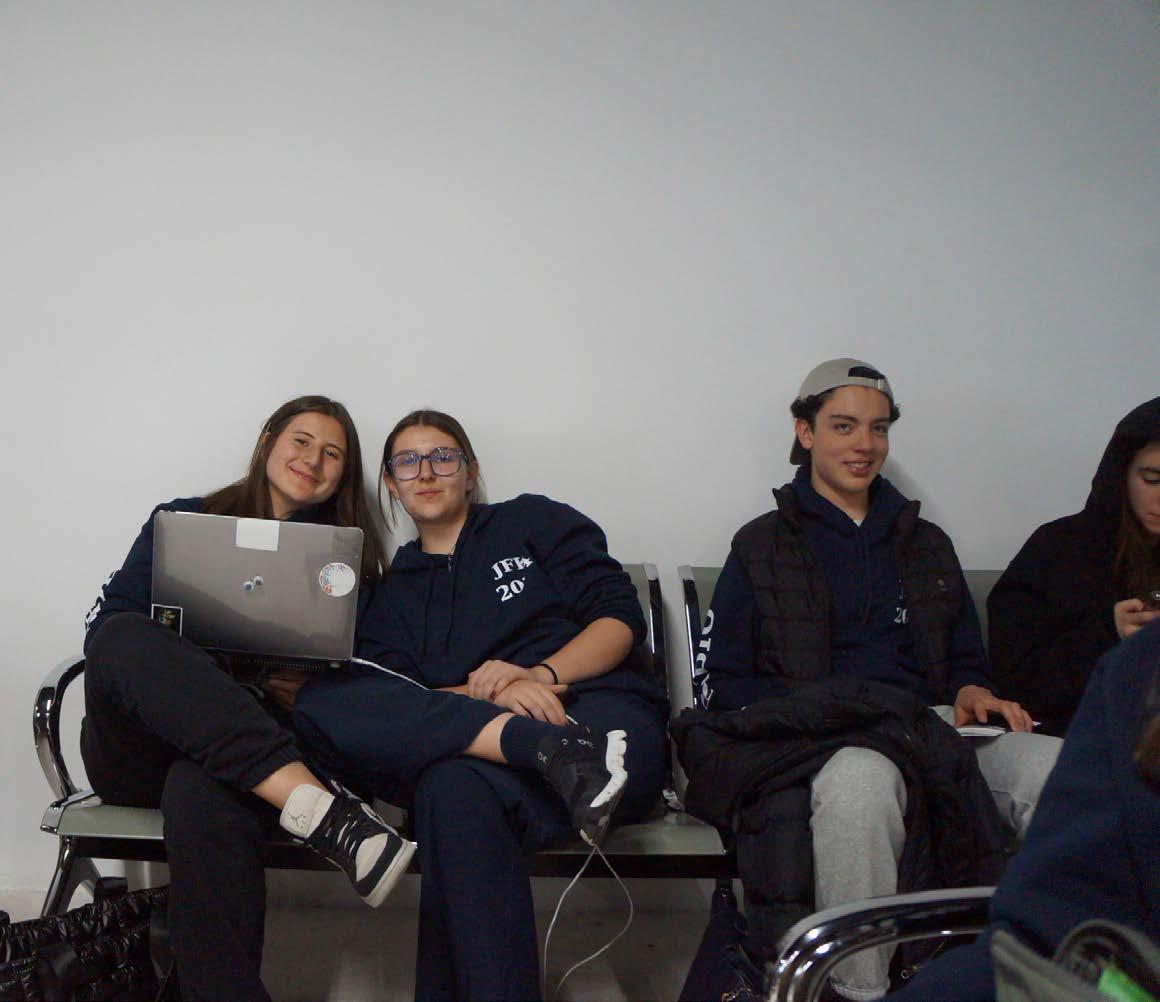
 by Felipe Rubio Alquicira 10th Grade Student
by Felipe Rubio Alquicira 10th Grade Student

We departed Queretaro at 5 am, making our way to DC. We were excited but also nervous despite the early hour. For me and my fellow Jaguar Delegates from John F. Kennedy The American School of Queretaro, going to a Model UN conference in Washington, DC was like a dream come true. After waiting since sixth grade, we finally got the chance to attend NAIMUN LXI (The North American Model United Nations Conference).


Ever since sixth grade, I’ve been dreaming about going to Washington for ModelUN. We spent weeks preparing and practicing, and finally, it was time for the big trip. Thirteen of us, along with our teachers Miss Bailey Bliss and Mr. Felipe Reyes, proudly represented our school at NAIMUN LXI hosted by Georgetown University.
We were assigned countries to represent, and mine was Guatemala. It was our job to discuss and solve real-world problems, just like real diplomats do. The committee sessions were really long, almost three hours each time. And with about 200 people in each session, it felt like a lot of talking. It was exciting to see everyone so interested and involved. But it was also challenging since the procedures were different from what we were used to.

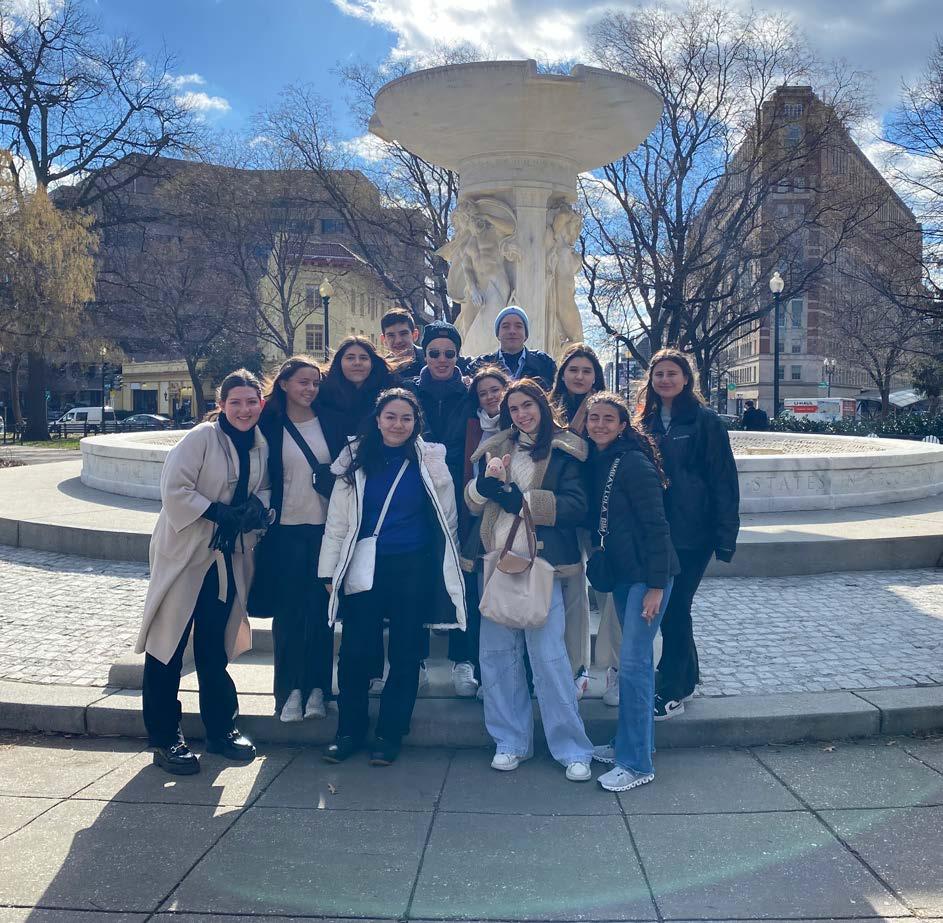

Exploring Washington, DC was the best part of the trip, even though it was freezing cold! We saw famous places like the Lincoln Memorial, the White House, and museums filled with cool stuff. My favorite was the National Museum of Aeronautics and Airspace, where I got to see actual planes and spacecraft up close.
Despite the chilly weather, our trip was filled with unforgettable experiences. We visited the Mexican Embassy in the US, where we listened to a conference about International Relations, which was pretty interesting. Adventures were never missing— exploring the streets of Dupont Circle trying to find an empty spot for dinner or even mastering the Metro system added an extra layer of excitement to our days.
Besides the trip itself, we also got to develop our leadership and diplomacy
skills. For example, I represented Guatemala along with my friend Isabella Olea in a discussion about public healthcare for indigenous communities at ECLAC (Economic Council for Latin America and the Caribbean). It was really interesting to hear different perspectives from all around the world.
Even after being so exhausted after a long day of work, we’d still hang out in the hotel lobby meeting new people from many different countries. I personally met great friends from Colombia, Peru, the United Kingdom, and France. We made friends with people from over 30 countries! Hanging out in the hotel lobby felt like being in a mini United Nations. Looking back on the trip, it was amazing. We had so much fun and learned a lot too. And to top it all off, some of us even won awards!
As we said goodbye to Washington, DC, we took home more than just memories. We made new friends and learned about important global issues. NAIMUN LXI wasn’t just a conference; it was an adventure that will stick with us for a llifetime.
I am an 8th grader Middle Schooler that attends JFK. When I entered Middle School, I was really disoriented since my generation had just come from the global pandemic and we were still figuring out and understanding that things were going back to normal.
In 6th grade, I stood out academically, and I received an email from a society called NJHS (which stands for National Junior Honor Society). Little did I know that I would become really passionate about making service and that NJHS helped me find the tools and contacts so that I could continue making it. Service didn’t really mean something important for me before NJHS. I started my lst Service Learning Journal in sixth grade with NJHS.
I joined Middle School recycling since I was really passionate about ecology. The recycling project was my start, after the rest of the team had to go to different activities and projects, I decided to stay with the recycling and I became the leader of the project.
With that project I started to feel a passion for helping others and causes, even though I didn’t receive anything in exchange but the joy of helping others.
With the help of NJHS, I gained contacts, including the teacher of the ecoclub. I joined the ecoclub in 8th grade but I still helped them in 7th grade in events such as the Kermesse. In 2024, I helped with the plant sale, the Kermesse sale, and also the Environmental Fair.
 by Katya Jiménez Olalla 8th Grade Student
by Katya Jiménez Olalla 8th Grade Student


I truly think that Service Learning is a wonderful experience.
In terms of my NJHS Service Learning projects, I have explored my ideas and interests with the help of the group. Since I started being a member of NJHS, some of the projects I have helped with are bikeathons, JFK Kermesse, Food Drives, “School for All campaign”, and more.
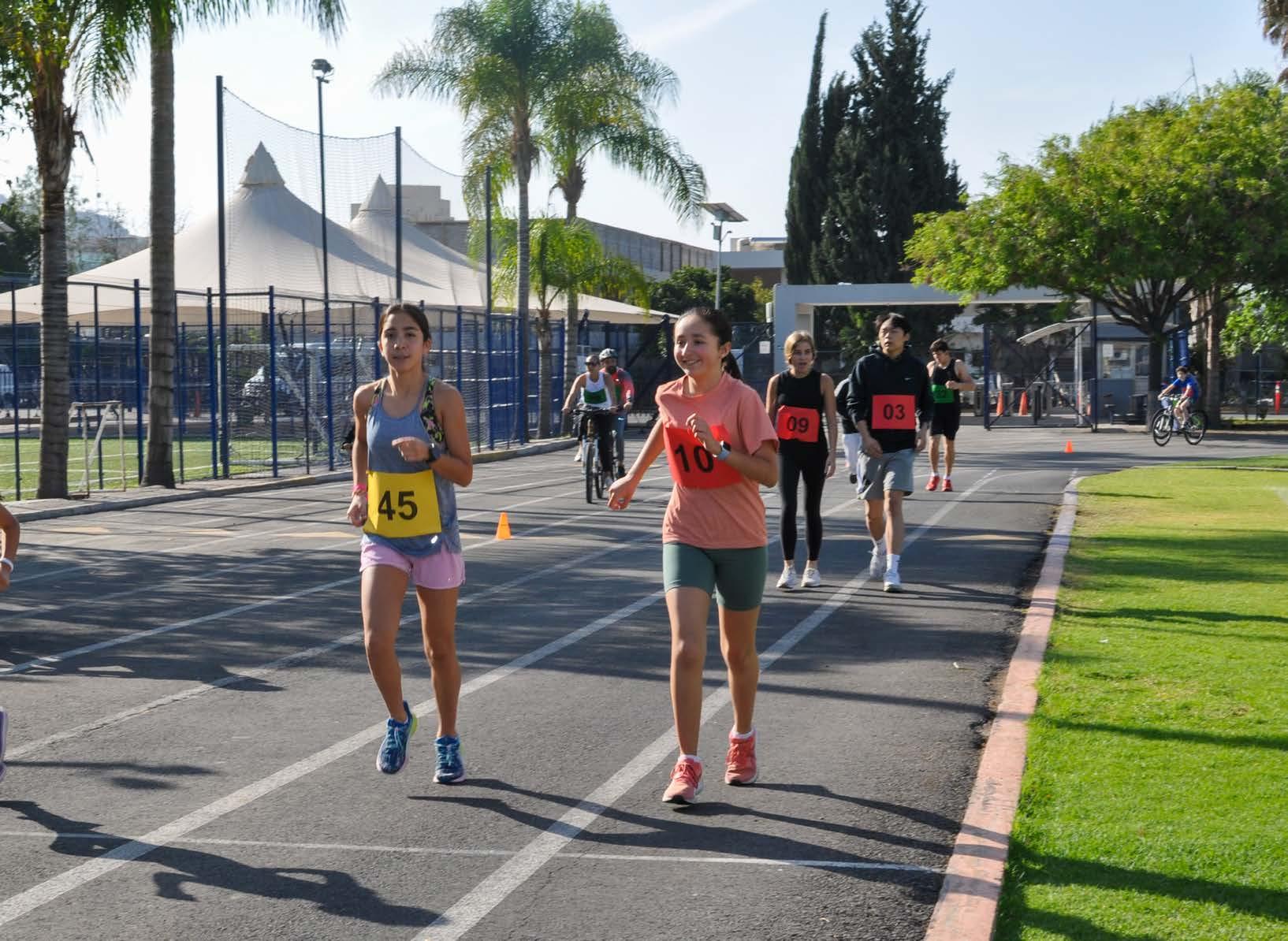
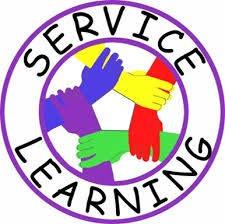

I am now in 8th grade and I also have the opportunity to perform Service Learning for one of my classes: Humanities. I decided to do a project in which I would donate dog food to a shelter of dogs in vulnerable situations. In this class, besides having to do the “service” part and reflecting about it and our progress, we needed to go deeper in the elements of our project. We even related our project with one or more of the UN SDG. For this, we also had to do some research previously. At the end, we have to present this project.

This process of research, planning, feedback, execution, reflection and demonstration it is not only in Humanities class, but also in most Service Learning projects that we do. But his process has a purpose, because the more we know about the topic, the more we realize we can have a positive impact in the world.
The information that we have learned in class has also helped me to perform Service Learning Projects not only because I get to know about new topics and start to feel passionate about making a difference on those poor causes, but also because they also help me understand information or gain knowledge that may be useful for my research or even my execution of the project, this will help my project be more successful.


Finally, I would like to add that the experience of performing Service Learning is incredible. It is a feeling I can’t really describe, but you know it feels good. By helping other people, and even though you don’t get anything physical in exchange, you get to change as a person for the better. While doing Service Learning, you can develop skills and practice human values that will be useful for the rest of your life.

The one-dollar Canadian coin is called a loonie, because it features a common loon on its most prevalent version. The loon is a bird that is present all around Canadian provinces.
The two dollar coin is called a toonie.
Brazil is the largest country in South America and the world’s fifth-largest country. It is so big that it has 4 time zones!

That the name Argentina comes from the Latin word for silver, argentum.

Diwali is the festival of lights in India. It is considered an homage to the defeat of darkness with light. Gummy bears (Gummibären) are German!
They were created by Hans Riegel in 1922. Hans founded the company Haribo which is an acronym of his name and the city of Bonn that he lived in. ( HAns RIegel, BOnn)
Istanbul is the largest city in Turkey and is located on 2 continents. Part of it lies in Europe and the other part in Asia.
Algeria is home to the hottest desert in the world: the Sahara Desert! It occupies about 80% of the country’s land.
While the Great Wall of China is considered to be one continuous wall, it is in reality a network of walls spanning over 20,000 km. Over 2000 years ago, Emperor Qin connected the walls to defend the first unified kingdom of China. This iconic architectural masterpiece is classified as a UNESCO World Heritage Site and is considered one of the Seven Wonders of The World.
Brussels is not only the Capital of Belgium but also, the chocolate capital of the world.
One third of the Netherlands is below sea level and is the origin of the name “The Netherlands” which translates to “the lowlands”.

Don Quixote, written in 1605 by Cervantes, is considered to be the first modern novel. The Spanish author was ahead of his time in his use of literary techniques such as metafiction, intertextuality and the unreliable narrator.
The 2024 summer Olympic Games will return to Paris, exactly 100 years after “The City of Lights” last hosted them in 1914.
The legend says that if you toss a coin in the Trevi fountain, you will return to Rome. Tourists, following the fable, toss around €3,000 into the fountain a day, which makes it around €1,000,000 a year. The money is donated to charity.
In 1885, the French gifted the Statue of Liberty to the U.S. in honor of the alliance between the two countries during the American Revolution.
Soccer, Rugby, Golf, Boxing and Cricket were all invented in the United Kingdom.

The Russian astronaut Yuri Gagarin, was the first human to journey into outer space.
Grenada is nicknamed the ‘Spice Island’ because of its impressive production of nutmeg, mace, cinnamon, ginger and cloves.
Colombia is home to 10 % of the biodiversity in the world.
Over 80% of the land in Japan is mountainous. It is also home to over 100 active volcanoes, which is about 10% of all active volcanoes in the world.
Mexico’s cuisine is recognized as an intangible Cultural Heritage by UNESCO.

Tarbela Dam is the largest earth-filled dam in the world. Located along the Indus River in Pakistan, the dam is 143 meters high above the riverbed.
In South Korea, individuals are traditionally considered one-year-old at birth, and their age increases on January 1st of each year.
The name Nicaragua comes from the name of the Nicarao indigenous people, who lived around what is now called Lake Nicaragua, and the Spanish word for water “agua”.